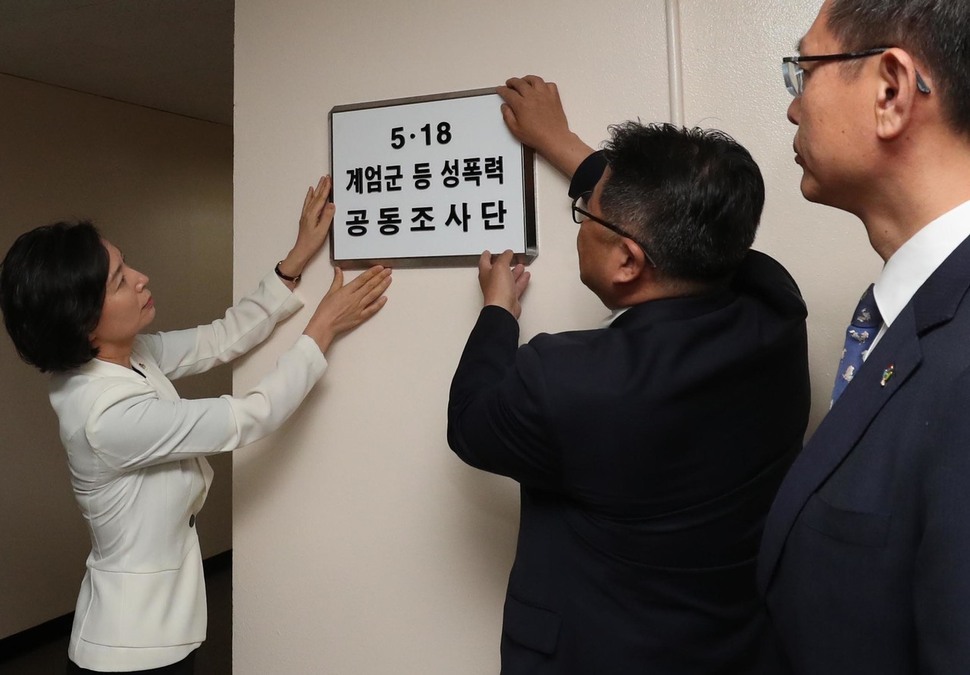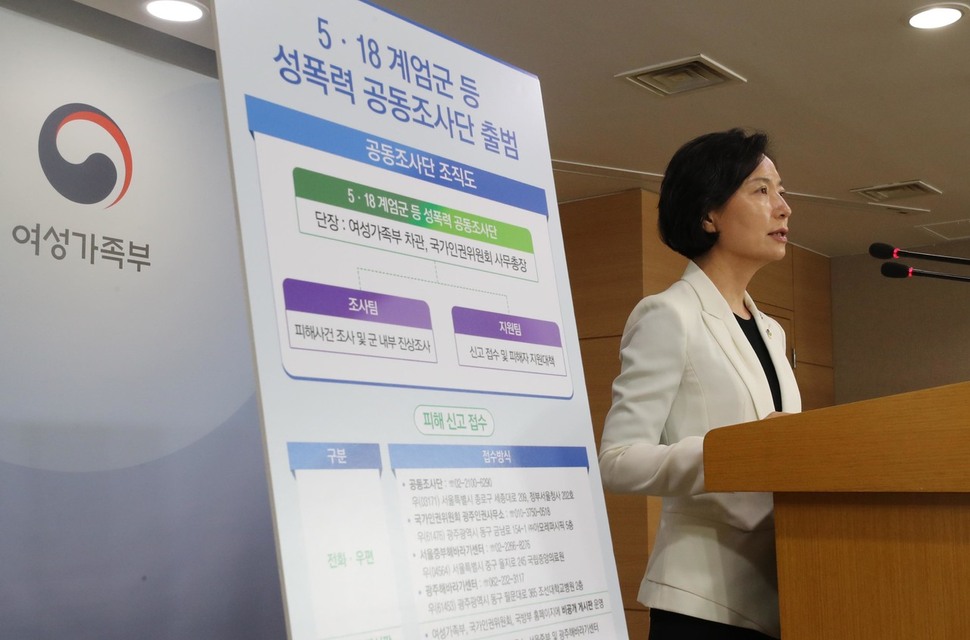 |
|
Vice Minister of Gender Equality and Family Lee Sook-jin and National Human Rights Commission (NHRC) Secretary-General Cho Yeong-seon and National Ministry of National Defense director of legal affairs Noh Su-cheol hold a “signboard hanging ceremony” on June 8 at the Central Government Complex in Seoul to mark the beginning of the commission’s investigation into the sexual violence perpetrated by martial law forces and investigators during the Gwangju Uprising. (Baek So-ah, staff photographer)
|
Investigation to be headed by joint commission representing three ministries
The South Korean government has launched an inquiry into sexual violence perpetrated by investigators from martial law forces and the Defense Security Command (DSC) at the time of the Gwangju Democratization Movement, also known as the Gwangju Uprising, which began on May 18, 1980. On June 8, the Joint Commission Investigating Sexual Violence by Martial law forces during the Gwangju Uprising held a “signboard hanging ceremony” in Room 202 of the Central Government Complex in Seoul to mark the beginning of its activities. Co-chaired by Vice Minister of Gender Equality and Family Lee Sook-jin and National Human Rights Commission (NHRC) Secretary-General Cho Yeong-seon, the commission represents three government ministries – the Ministry of Gender Equality and Family, the NHRC and the Ministry of Defense. The commission’s mandate runs through Oct. 31, 2018. According to the Special Act for Investigating the Gwangju Uprising, the Committee for Investigating the Gwangju Uprising will be launching in September, and the commission is planning to hand over its investigation results after about five months to the committee and work with the committee to uncover the full truth of the incident. The joint commission is composed of a support team, which is charged with collecting victims’ claims and providing them with assistance, and a team of investigators, which will be looking into those claims. The NHRC will be taking the lead in investigating the claims as well as any perpetrators who may be identified during that process.
 |
|
Vice Minister of Gender Equality and Family Lee Sook-jin heads a briefing on June 8 concerning the joint inquiry commission of government ministries that is to investigate sexual violence perpetrated by martial law forces and DSC investigators during the Gwangju Uprising. (Baek So-ah, staff photographer)
|







